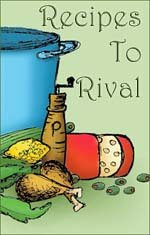For the past few months I have been reading exclusively books about cooking, chefs, and food. There are a lot of great books out there, and probably even more since the celebrity chef craze took off. The first one of these books I read was Letters to a Young Chef by Daniel Boulud (of such restaurants as Daniel, DB Bistro Moderne, Cafe Boulud, and Daniel Boulud Brasserie).

The book is targeted at culinary school graduates about to enter the professional kitchen for the first time. As Boulud bluntly writes, one necessity of becoming a chef is youth. "Notice these are Letters to a Young Chef, not a new chef. In other words, if you were thirty years old I would not be writing this to you, because the demands of the job and the competition out there require that you start young, as you have, as I did" (p. 85). Ouch. Of course, this is coming from a man who started working in kitchens at 15 years old. So how young do you have to be? 15? 20? Am I over-the-hill at 25?
Despite being clearly far too old to become a chef, and having no culinary school experience, I read on. Fortunately, I did not pick up this book with the intention of becoming an executive chef at a five star restaurant. Rather, I was interested in gaining some insight into the culinary profession generally. Letters to a Young Chef is interwoven with memoir, instruction, advice, and thoughts on food. It presents a reality of the culinary world meant to discourage those who would be easily discouraged, and encourage the passion of others. Boulud offers valuable advice to those interested in becoming chefs. He talks about mastering the use of heat, cultivating your taste buds, the importance of excellent ingredients, proper seasoning, and things to keep in mind when running your own restaurant. One of my favorite tidbits is "do not be a slave to the faddish idea that butter does not belong in the kitchen. Without it, you will never be able to cook so many of the recipes in the classique repertoire" (p. 47). How true. Nine times out of ten if you ask the secret to a particularly delicious dish, the answer is butter, and lots of it.
Boulud really goes into every aspect of restaurants - the cooks, chefs, front of house staff, the importance of dessert and wine (both gastronomically and economically speaking), interacting well with others, etc. In the end Boulud includes "The Ten Commandments of a Chef" and a selection of some of his favorite recipes.
Even if you are not the intended audience for this book (as I was not) I would recommend it. At 124 pages it is a short, entertaining read. If anything it is a good memoir with interesting insight into the culinary world.



No comments:
Post a Comment